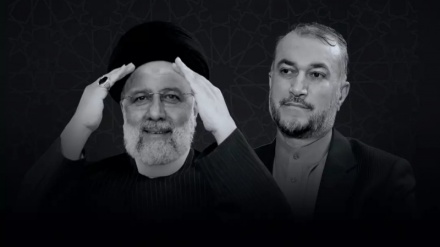Narration of a conversation on the most hope-inspiring verse of the Qur'an
Pars Today- One of the teachers of Qom seminary, mentioning a religious narration, called verse 114 of chapter Hūd as the most hope-inspiring verse of the Qur'an and said, "This verse speaks about the effect of righteous deeds in omission of evil deeds and sins."
In all periods of human history, hope and calm have been the basic foundstion of human life. If there is no hope, human being will not have a motive for continuation of life. The great Prophet of Islam (Blessings of God upon him and his progeny) said, "Hope is mercy for my Ummah. Had there not been hope, no mother would have breastfed her child and no gardener would have planted a tree." (Behar-ul-Anwar, v77, p175)
Once, Imam Ali (Peace upon him), the first Imam of Shia Muslims and the testamentary legatee of the Prophet, addressing people, said, "What do you think is the most hope-inspiring verse of the Qur'an?" Everybody mentioned a verse according to his own understanding. Some said verse 48 of chapter Al-Nisa' is the verse which reads, "Indeed, Allah does not forgive that any partner should be ascribed to Him, but He forgives anything besides that to whomever He wishes."
The Imam said, "It is good, but it is not what I mean." Some others recited verse 110 of chapter Al-Nisa' as the most hope-inspiring verse which reads, "Whomever commits evil or wrongs himself and then pleads to Allah for forgiveness, will find Allah all-forgiving, all-merciful."
Imam Ali again said, "It is good, but it is not what I mean." Still others said verse 53 of chapter Zumar is what the Imam wants. The verse reads, "Say [that Allah declares,] 'O My servants who have committed excesses against their own souls, do not despair of the mercy of Allah. Indeed, Allah will forgive all sins."
But, Imam Ali (Peace upon him) said, "This is also good, but it is not what I mean."
Others recited other verses, but the Imam didn’t accept till he himself told them, "I heard my dearest friend, the Messenger of God, as saying, 'The most hope-inspiring verse of the Qur'an is verse 114 of chapter Hūd which reads, "Maintain the prayer at the two ends of the day, and during the early hours of the night. Indeed, good deeds efface misdeeds.'"
The reason for this verse's being hope-inspiring is clear as the verses mentioned by the companions of Imam Ali say that God forgives sins, whereas this verse says that God effaces evil deeds and erases the effects of sins and misdeeds as if the person had not committed any sin at all. This verse mentions the effect of righteous deeds in destroying the effects of misdeeds and sins. This is called "Takfir" (absolution) which is the opposite of "Habt" (failure of deeds).
That the righteous deeds will efface and absolve sins, causes a motive and hope in human being so that he embarks on doing of righteous deeds and keeps aloof from evil deeds. The most obvious righteous deed is daily ritual prayer which the verse points to. Prayer, in addition to effacing the effects of sins, is a cause of calm and hope per se.
Source: Mir Emadi, Seyyed Ahmad. 2020. What is the most hope-inspiring verse of the Qur'an? Mehr news agency
Key phrases: What book is the Qur'an, hope in the Qur'an, sin in the Qur'an, who is Imam Ali
RM/ME



